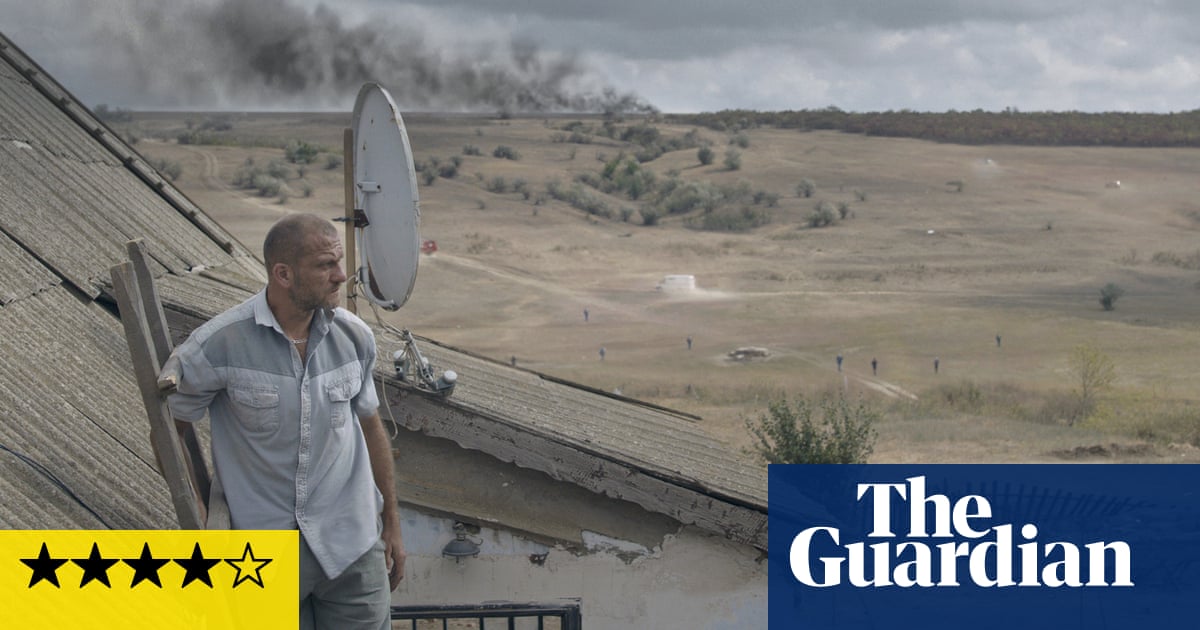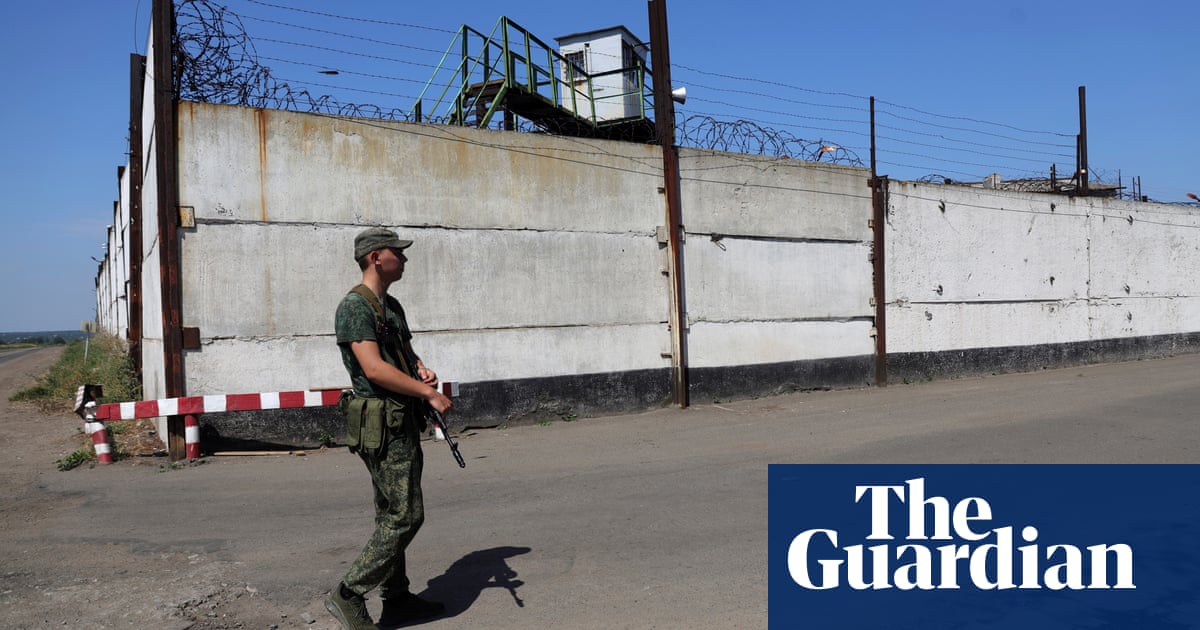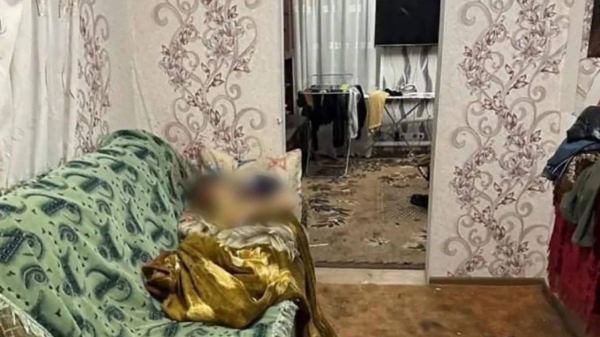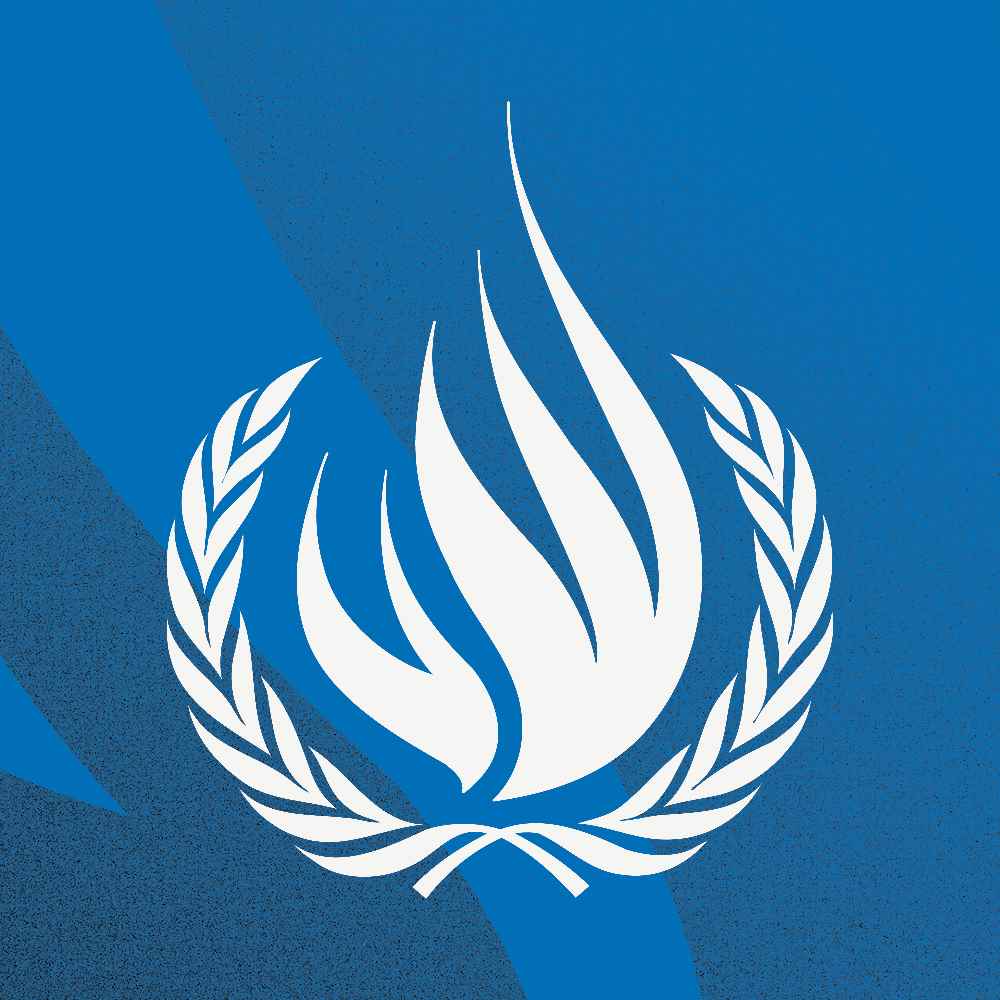
Although this Ukrainian drama mostly unfolds in and around a small farmhouse on the Donbas steppes in 2014, it contains on a microcosmic scale all the fundamental components that have contributed to the conflict in the region. There’s the inherent tension between Ukrainians and Russians, symbolised in the marriage between Ukrainian wife Irka (Oxana Cherkashyna) and ethnically Russian husband Tolik (Sergiy Shadrin); the interventionist forces from Russia and Chechnya we see tramping through the area stirring up hatred and bloodshed; and the fatal blend of machismo, sheer fecklessness and trigger-happiness that causes stupid acts of destruction. In the space of a single opening shot that pans 360 degrees around one room, heavily pregnant Irka and Tolik go from being ordinary expectant parents, cheerfully bickering over where Irka’s hospital bag is, to traumatised victims of war when a stray mortar blows the front of their house away.
Seconds before the wall of their sitting room is obliterated, Tolik speaks about getting away from the war that’s coming, but by the end of the film it’s obvious that it is Irka who has been stubbornly set on staying put. The film, by female Ukrainian director Maryna Er Gorbach, is dedicated to all womenkind – and presumably we’re meant to admire Irka’s bullish determination and commitment to her home, the cow she milks every day, the chickens she keeps, and the preserved vegetables made in preparation for the long winter.
And yet I can’t be the only viewer who feels a little frustrated with Irka, thinking surely she should be thinking about her unborn child’s safety and getting the hell out of Dodge when the bombs start falling. Neighbours start turning into separatists in support of the Russian invaders, and Irka’s brother Yaryk (Oleg Scherbina) shows up from Kyiv and tries to get her to come with him – but instead she puts him and Tolik to work moving the sofa outside so they can beat the dust out of it. The absurdity of Irka’s fanatical devotion to domesticity gradually escalates into full-on horror as planes start dropping out of the sky, with corpses of passengers falling in the fields nearby, still strapped to their seats.
Er Gorbach and cameraman Sviatoslav Bulakovskyi temper the madness with stately camera compositions and deep focus shots that catch everything at once: the characters we know in the foreground in various states of distress, troops and heavy artillery manoeuvring on the roads beyond, and far off in the horizon dark clouded weather systems threatening to bring further deluge. Unsurprisingly, it all builds to a bleak conclusion, and the film as a whole is a powerful statement that lingers in the mind long after the final credits roll.












